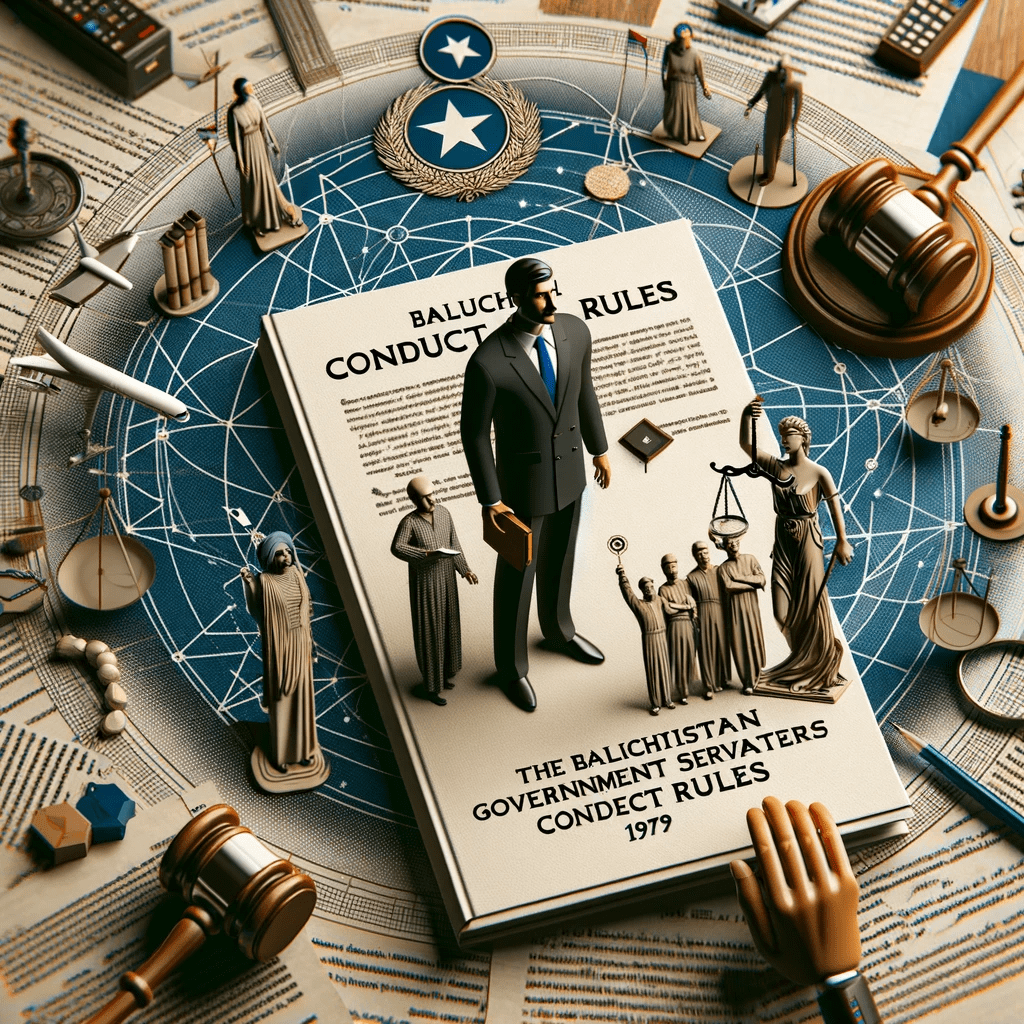The Punjab Civil Servants (Efficiency and Discipline) Rules, 1999
The Punjab Civil Servants (Efficiency and Discipline) Rules, 1999 The Punjab Civil Servants (Efficiency and Discipline) Rules, 1999, form a vital set of regulations in the governance and management of civil servants within the Punjab province of Pakistan. These rules are designed to ensure the efficiency and discipline of civil servants, setting out procedures for addressing issues related to their conduct, performance, and behavior in the workplace. Rules Contents Preamble CHAPTER 1 1. Short title, commencement and application. 2. Definitions Chapter II PENALTIES 3. Grounds for penalty. 4. Penalties. Chapter III INQUIRY AND IMPOSITION OF PENALTIES 5. Initiation of proceedings. 6. Procedure to be observed by the authority 7. Procedure to be observed by the inquiry officer or inquiry committee. 8. Appearance of Counsel. 9. Expeditious disposal of proceedings. 10. 11. Certain rules not to apply in certain cases 12. Procedure of inquiry against offices lent to other governments etc. 13. Power to order medical Examinations to mental or bodily infirmity 14. Powers of Inquiry Officer and Inquiry Committee. Chapter IV APPEALS, REVISIONS, ETC. 15. Appeal against Penalty. 16. Petition of appeal. 17. Determination of appeal. 18. Review and not appeal in certain cases. 19. No second appeal except in certain cases. 20. Revision Chapter V REPEAL 21. Repeal. The Punjab Civil Servants (Efficiency and Discipline) Rules, 1999 21st June. 1999 In exercise of the powers conferred upon him by section 23 of the Punjab Civil Servants Act, 1974, the Governor of the Punjab is pleased to make the following rules, namely:- CHAPTER I PRELIMINARY Short title, commencement and application.-(1) These Rules may be called the Punjab Civil Servants (Efficiency and Discipline) Rules, 1999. (2) They shall come into force at once and apply to all civil servants except members of such services and holders of such posts, as may be specified by , government. 2. Definitions.-(1) In these rules, unless She context otherwise requires:- (a) ‘accused’ means a civil servant against whom action is taken under these rules; (b) ‘authority’ means the government or an officer or authority designated by it to exercise the powers of the authority under these rules; (c) ‘Enquiry Officer’ means an officer appointed by the authority to perform the functions of an Enquiry Officer under these rules; (d) ‘Enquiry Committee’ means a group of officers (headed by a convener) appointed by the authority to perform the functions of Enquiry committee under these rules; (e) ‘misconduct’ means conduct prejudicial to good order or service discipline or contrary to the Punjab Government Servants (Conduct) Rules, 1966 or conduct unbecoming of an officer and a gentleman and includes any act on the part of a civil servant to bring or attempt to bring political or other outside influence directly or indirectly to bear on the Governor, the Chief Minister, a Minister, or any government officer in respect of any matter relating to the appointment, promotion, transfer, punishment, retirement or other conditions of service of a civil servant; and (f) ‘Penalty’ means a penalty which may be imposed under these rules. (2) In case two or more civil servants are to be proceeded against jointly, the authority for the civil servant senior-most in rank, shall be the authority in respect of all such accused. (3) Subject to these rules, the various authorities empowered to award major penalties under the various Delegation of Powers Rules, shall, in respect of the civil servants for whom they are authorised under the said rules to exercise the powers of the authority under these rules (4) Words and expressions used but not defined shall bear the same meanings as they bear in the Punjab Civil Servants Act, 1974. (5) Save in case where the Government is to act as ‘the authority’ and notwithstanding anything to the contrary contained in rule 2, where the authority would personally be interested in the result of the proceedings under these rules, it shall nut proceed with the case and shall report the matter to the appellate authority to which the orders passed by ‘the authority’ are ordinarily appealable and such appellate authority shall appoint and authorise another officer of the corresponding rank and status to act as the ‘authority’ CHAPTER II PENALTIES Grounds for penalty. -A civil servant, who:- (a) is inefficient or has ceased to be efficient; or (b) is guilty of misconduct; or (c) is corrupt, or may reasonably be considered corrupt because:- (i) he is, or any of his dependents or any other person through him or on his behalf, is in possession of pecuniary resources or of property disproportionate to his known sources of income, which he cannot reasonably account for; or (ii) he has assumed a style of living beyond his ostensible means; or (iii) he has a persistent reputation of being corrupt; or (d) is engaged, or is reasonably suspected of being engaged in subversive activities, or is reasonably suspected of being associated with other engaged in subversive activities or is guilty of disclosure of official secrets to any un-authorised person, and his retention in service is, prejudicial to national security; shall be liable to be proceeded against under these rules and one or more of the penalties hereinafter mentioned may be imposed on him. 4. Penalties.-(1) The following are the penalties namely:- (a) Minor Penalties:– (i) censure;. (ii) withholding, for a specific period, promotion or increment, otherwise than for unfitness for promotion or financial advancement in accordance with the rules or orders pertaining to the service or post; (b) Major Penalties:- (i) reduction to a lower post or pay-scale or to a lower stage in a pay-scale; (ii) recovery of the whole or any part of any pecuniary loss caused to government by negligence or breach of orders; (iii) compulsory retirement’, (iv) removal from service; and (v) dismissal from service. (2) Removal from
The Punjab Civil Servants (Efficiency and Discipline) Rules, 1999 Read More »
Laws of Pakistan - Library

